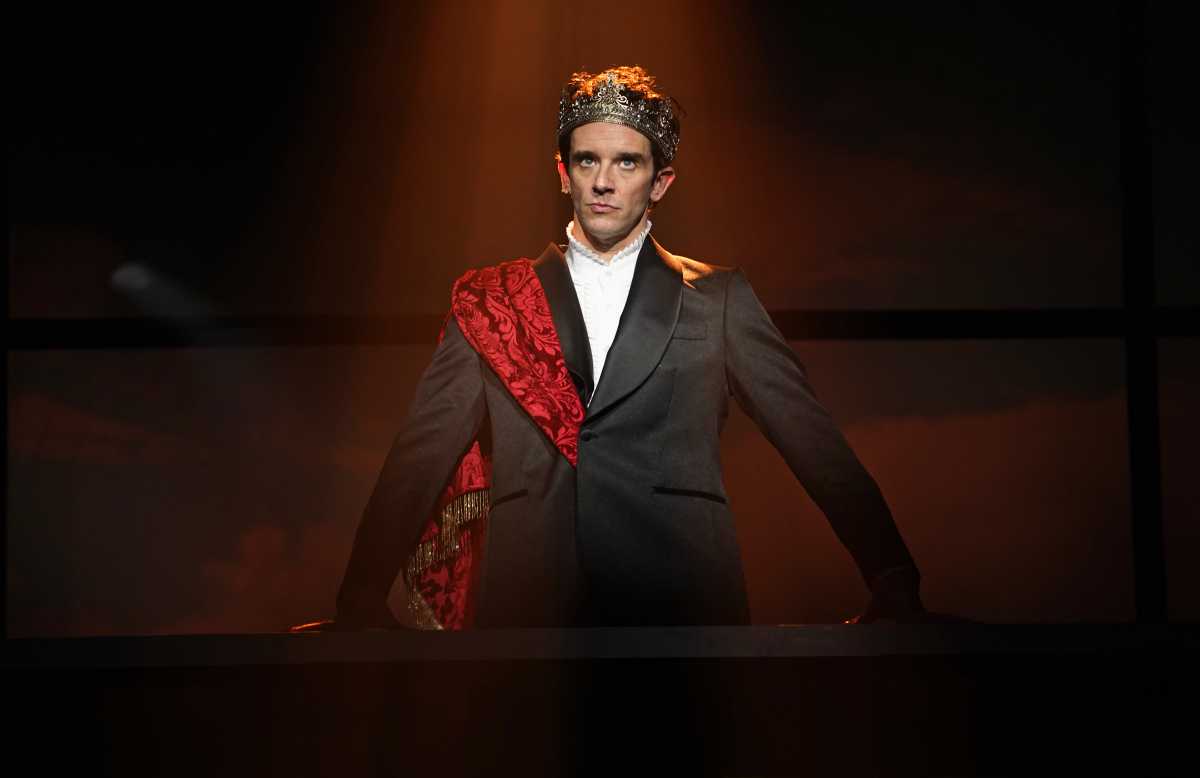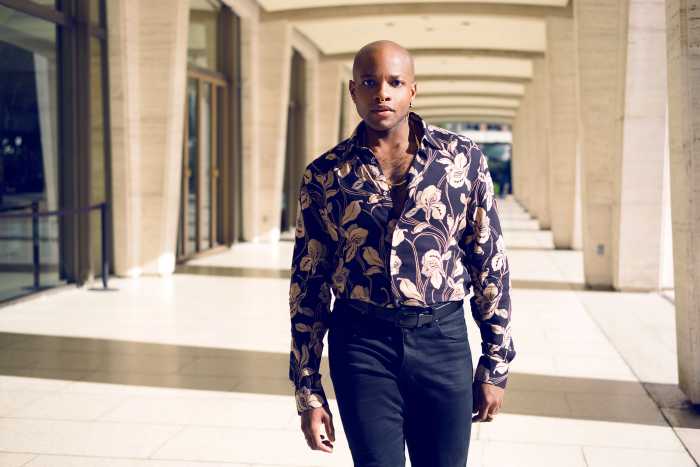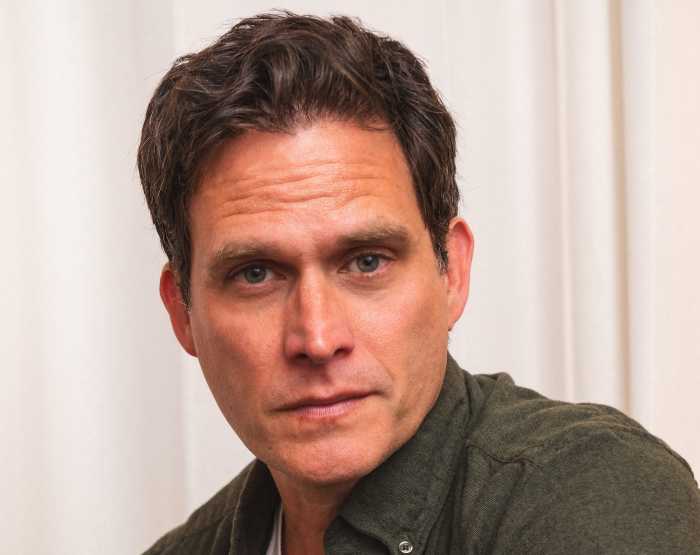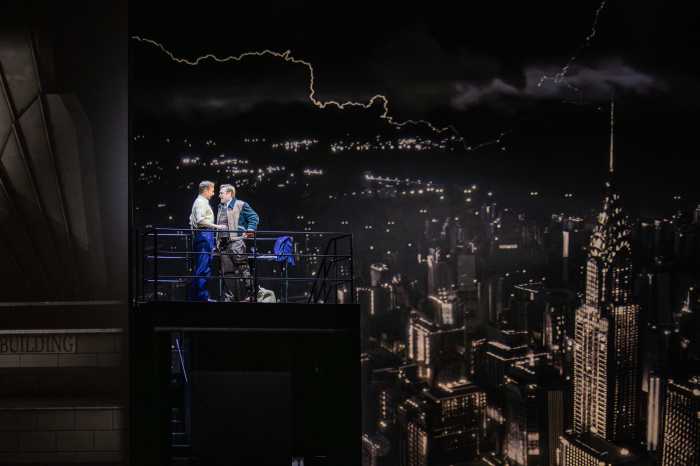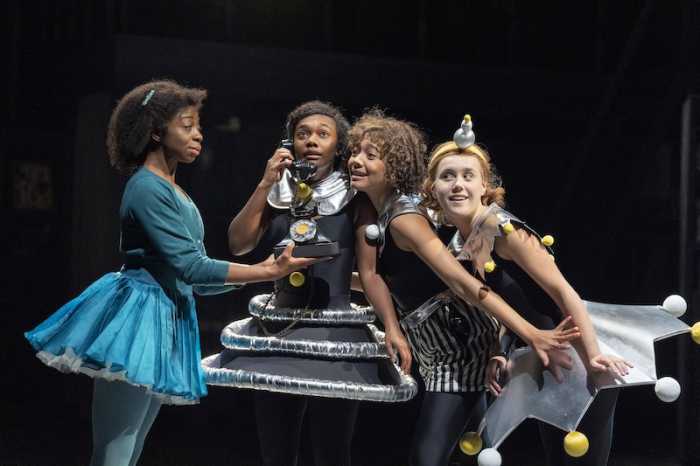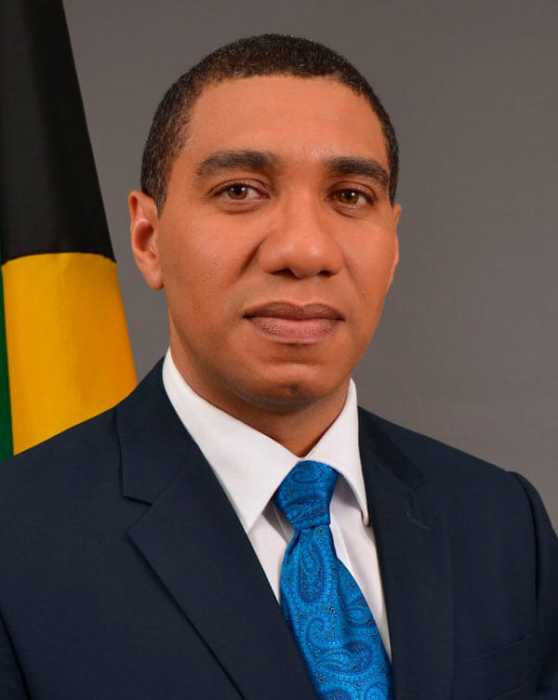From the opening moments of Red Bull Theater’s roughly lyrical and engrossing “Richard II,” Michael Urie in the title role fully inhabits both Shakespeare’s character and the bard’s language. It’s a masterful performance that cuts through the complexities of the plot and the poetry to give a gripping portrait of politics and power struggles in a nation torn by internal strife.
The new production, adapted and directed by Craig Baldwin, tells the story as a flashback beginning as Richard, now deposed, sits in a cell in the Tower, ostensibly contemplating the road that has led him here. Stripping away the protracted, opening court scene of the original makes the focus more personal — not to mention accessible to a contemporary audience — and sets the tone for the rest of the play, as personal motivations and machinations inform all the characters. This approach gives the production a visceral immediacy, which provides a strong and illuminating foil for the political plotting. The effect is that this “Richard II” is played as tragedy, as Shakespeare first intended, rather than a history, as identified in later versions.
Historically, Shakespeare tells the story of Richard’s final two years when the king has alienated elements of the government, conferred favors on close allies, sought revenge on those who he thought had wronged him, and increasingly said that he was king by divine right and that only God could depose him. That Henry Bolinbroke (later Henry IV) does so shatters Richard and provides some of Shakespeare’s most beautiful reflections on royalty and mortality in all his work.
In its time, “Richard II” was seen a criticism of Elizabeth I, something even she famously remarked on. Today, the parallels to a more contemporary would-be omnipotent leader are inevitable. It’s all the more evident in that Baldwin has chosen to set the piece in 1980s Manhattan, when a climbing, Queens real estate developer was working to make a name for himself. Fortunately, the point isn’t labored, and the audience is free to make the connection or not. (Unlike the “Julius Caesar in Central Park” in 2017 when the styling of Caesar as Trump was overt.) Baldwin has also chosen to portray Richard as gay — or at least bisexual — and there are some steamy clinches with his cousin, Aumerele, though that isn’t borne out in history. In this case, it adds a frisson of tension between Aumerele and his mother, the Duchess of York, who is anti-Richard (The Duke became a Duchess for this production.), that is compelling and is another example of Baldwin’s emphasis on the characters over the plot in this production.
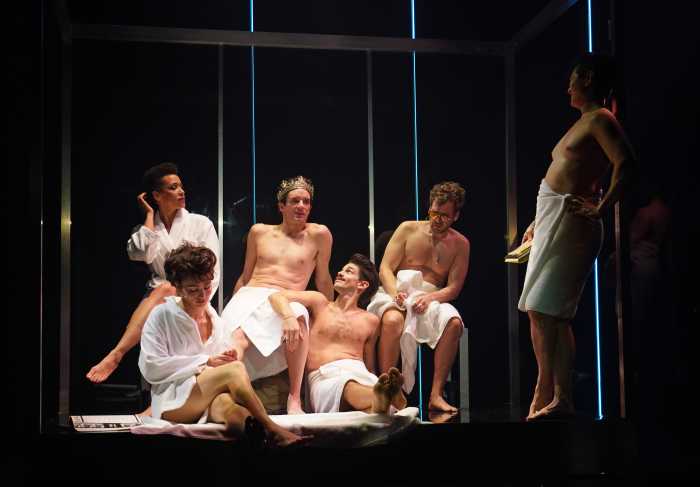
As often happens, happily, with Shakespeare, the excitement of this production is not in the concept. It’s in the performances of the largely fine cast. As mentioned, Urie’s detailed performance mixes comedy, bathos, and power to provide a gripping portrait. Because the play is presented in flashback, Richard haunts the edges of scenes, as if he is trying to understand how it all went wrong. Urie is matched in energy and intensity by the outstanding performance of Grantham Coleman as Henry Bolingbroke. Coleman commands the stage, making the text sound fully natural and fluid. His strength and conviction as Bolingbroke challenges Richard is a central argument in the piece that it is man, not God, that determines who will command the mortal plane. In the deposition scene, Bolingbroke stands immobile, waiting for Richard to accept his fate and relinquish the crown. The theatrical power is in the simplicity.
Other standouts in the cast include Ron Canada who plays both John of Gaunt and the Bishop of Carlisle, two opposite characters. Whereas Guant praises England and challenges Richard, Carlisle defended Richard’s divine right, and Canada makes them both rich and intense. David Mattar Merten is excellent as Aumerle, expressing both love for Richard and a willingness to do whatever he can to seek advancement when the politics shift. Kathryn Meisle as York is the ultimate political survivor. (Call her the Lindsey Graham of the court.) At first she supports Richard’s divine right, but when Bolingbroke becomes ascendent, she switches and even disowns her son Aumerle. Meisle’s clear and focused performance is a chilling example of the self-dealing hypocrisy of those near the seat of power.
The production is played on a simple stage, with a rotating glass box at the center that serves as prison cell, throne room, steam room, and more. The lighting by Janet Oi-Suk Yew is atmospheric, and the costumes by Rodrigo Muñoz are exactly what you’d expect from the “Bright Lights, Big City” vibe of the piece as a whole.
It seems apt to stage “Richard II” today. With it’s themes of power and its abuses, political infighting, ambition, and chaos, it’s unlikely that Red Bull staged it to inspire a revolution (As happened in Elizabeth I’s time.), but it does make us think that these have long been the elements of governments.
Richard II | Astor Place Theatre | 434 Lafayette Street | Tues-Fri, Sat 7 p.m.; Sat, Sun 2 p.m. through December 14 | $49-$129, premium seats $300 at Ticketmaster | 2 hours, 30 mins, 1 intermission

